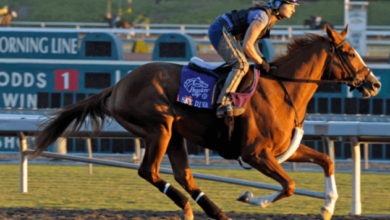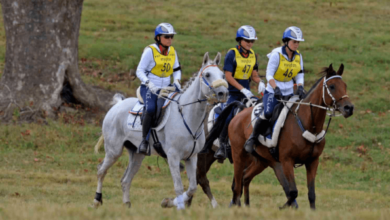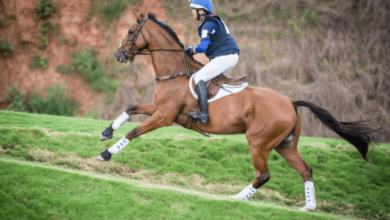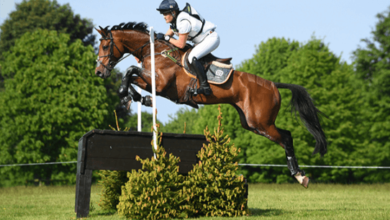How do you ensure the health and fitness of your horse during the racing season?
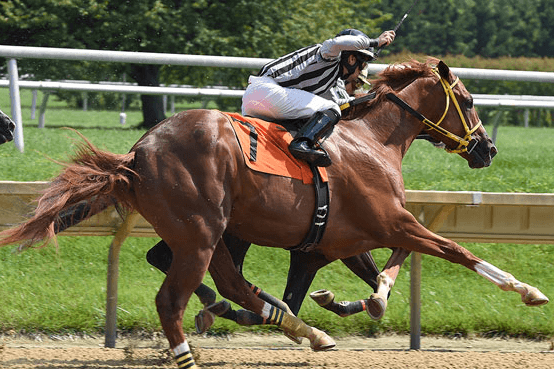
Introduction
Ensuring the health and fitness of your horse during the racing season is paramount for achieving peak performance and maintaining overall well-being. Horses are incredible athletes, and just like human athletes, they require careful management, tailored training, and attentive care to perform their best. This comprehensive guide will delve into the various aspects of maintaining your horse’s health and fitness throughout the racing season, providing valuable insights and practical tips for horse owners and trainers.
Understanding Your Horse’s Nutritional Needs
Proper nutrition is the cornerstone of a horse’s health and fitness. Racing horses require a well-balanced diet that meets their energy demands without causing digestive issues.
Balanced Diet
A balanced diet for a racing horse typically includes high-quality forage, grains, and supplements. Forage, such as hay, should form the bulk of the diet, providing essential fiber for digestion.
Energy Requirements
Racing horses have high energy needs. Providing a diet rich in carbohydrates and fats helps meet these demands. Grains like oats, barley, and corn are common energy sources.
Supplements
Supplements play a crucial role in filling nutritional gaps. Common supplements include electrolytes, vitamins, minerals, and joint health products. Consult with a veterinarian to determine the best supplements for your horse.
Hydration: The Key to Performance
Proper hydration is essential for maintaining a horse’s performance and preventing dehydration, which can lead to serious health issues.
Water Intake
Ensure your horse has constant access to clean, fresh water. Horses can drink between 5 to 10 gallons of water per day, and this amount increases during intense training or racing.
Electrolyte Balance
Electrolytes, including sodium, potassium, and chloride, are vital for muscle function and hydration. During the racing season, supplementing with electrolytes can help maintain the balance lost through sweat.
Tailored Training Programs
A well-structured training program is essential to prepare your horse for the demands of racing.
Conditioning
Gradual conditioning helps build your horse’s endurance and strength. Start with low-intensity exercises and progressively increase the intensity and duration.
Interval Training
Incorporating interval training, which alternates between high-intensity and low-intensity work, can improve cardiovascular fitness and stamina.
Monitoring Progress
Regularly monitor your horse’s progress through fitness assessments and adjust the training program as needed. Heart rate monitors and fitness tracking apps can provide valuable data.
Regular Veterinary Check-Ups
Routine veterinary check-ups are crucial for early detection and prevention of health issues.
Health Assessments
Schedule regular health assessments to monitor your horse’s overall condition, including weight, coat quality, and hoof health.
Vaccinations and Deworming
Keep your horse up to date with vaccinations and deworming schedules to protect against infectious diseases and parasites.
Hoof Care and Maintenance
Healthy hooves are fundamental for a racing horse’s performance and well-being.
Regular Trimming
Schedule regular hoof trims with a professional farrier to maintain proper hoof shape and balance.
Hoof Supplements
Consider hoof supplements containing biotin, methionine, and zinc to promote strong and healthy hooves.
Injury Prevention and Management
Preventing injuries is critical for maintaining your horse’s racing career.
Warm-Up and Cool-Down
Always incorporate proper warm-up and cool-down routines before and after training sessions to prevent muscle strain and injuries.
Protective Gear
Use protective gear, such as leg wraps and boots, to provide additional support and protection during training and racing.
Managing Stress and Mental Health
Just like physical health, mental well-being is crucial for a horse’s performance.
Consistent Routine
Maintain a consistent daily routine to reduce stress and anxiety. Horses thrive on predictability.
Social Interaction
Ensure your horse has regular social interactions with other horses. Socialization helps reduce stress and promotes mental well-being.
Grooming and Skin Care
Regular grooming not only keeps your horse looking good but also promotes skin health and helps detect early signs of health issues.
Daily Grooming
Brush your horse daily to remove dirt, debris, and loose hair. This also stimulates blood circulation and promotes a healthy coat.
Skin Care Products
Use appropriate skin care products, such as shampoos and conditioners, to maintain skin health and prevent infections.
Nutrition for Recovery
Recovery nutrition is as important as the pre-race diet.
Post-Race Feeding
After a race, provide a balanced meal that includes easily digestible carbohydrates, protein, and fats to aid in recovery.
Hydration and Electrolytes
Replenish lost fluids and electrolytes immediately after the race to prevent dehydration and muscle cramps.
Managing Weight and Body Condition
Maintaining an optimal weight and body condition is crucial for performance and overall health.
Body Condition Scoring
Regularly assess your horse’s body condition using a body condition scoring system. Aim for a score that indicates a healthy balance of muscle and fat.
Adjusting Feed
Adjust your horse’s feed according to their condition and workload. Consult with a nutritionist if needed to create a customized feeding plan.
Addressing Common Health Issues
Be aware of common health issues in racing horses and know how to address them.
Respiratory Problems
Respiratory issues can significantly impact performance. Ensure your horse’s living environment is well-ventilated and free from dust.
Gastric Ulcers
Racing horses are prone to gastric ulcers due to stress and diet. Provide ulcer prevention supplements and ensure they have access to forage at all times.
Monitoring Performance and Fitness Levels
Regularly monitoring your horse’s performance and fitness levels helps in making informed decisions.
Fitness Tests
Conduct periodic fitness tests, such as timed runs or heart rate measurements, to assess your horse’s endurance and recovery.
Performance Tracking
Keep detailed records of your horse’s training and racing performance to identify patterns and areas for improvement.
Rehabilitation and Rest
Adequate rest and rehabilitation are vital for maintaining long-term health and performance.
Rest Periods
Incorporate rest periods into your horse’s training schedule to allow for physical and mental recovery.
Rehabilitation Programs
If your horse sustains an injury, follow a structured rehabilitation program under veterinary guidance to ensure proper healing.
Understanding Equine Behavior
Understanding your horse’s behavior can help you better manage their health and fitness.
Body Language
Learn to read your horse’s body language to identify signs of discomfort, stress, or illness early.
Behavioral Changes
Be alert to any sudden changes in behavior, as they can indicate underlying health issues.
Environmental Considerations
The horse’s environment plays a significant role in their health and fitness.
Stable Management
Maintain a clean, safe, and comfortable stable environment. Regularly clean bedding and ensure proper ventilation.
Turnout Time
Provide ample turnout time in a pasture to allow for natural movement and socialization.
Role of Genetics in Performance
Genetics can influence a horse’s performance and susceptibility to certain health issues.
Breeding Considerations
Consider genetic factors when breeding for racing. Select breeding pairs with desirable traits and strong health records.
Genetic Testing
Utilize genetic testing to identify potential health risks and tailor care accordingly.
Importance of a Skilled Team
A skilled team of professionals is essential for managing your horse’s health and fitness.
Veterinarian
Work with a trusted veterinarian for regular health assessments, vaccinations, and medical advice.
Farrier
A professional farrier ensures proper hoof care and maintenance.
Trainer
An experienced trainer tailors the training program to meet your horse’s specific needs.
Monitoring Weather Conditions
Weather conditions can significantly impact a horse’s health and performance.
Hot Weather
In hot weather, ensure your horse stays cool and hydrated. Avoid training during peak heat hours and provide shade.
Cold Weather
In cold weather, ensure your horse stays warm. Use blankets and provide adequate shelter to prevent cold-related health issues.
Nutritional Strategies for Peak Performance
Adopting effective nutritional strategies can enhance your horse’s performance during the racing season.
Pre-Race Nutrition
Provide a high-energy meal a few hours before the race to ensure your horse has enough fuel.
During-Race Hydration
During longer races, ensure your horse stays hydrated by providing access to water at intervals.
Conclusion
Ensuring the health and fitness of your horse during the racing season involves a multifaceted approach that encompasses nutrition, training, veterinary care, and environmental management. By understanding and addressing the unique needs of your horse, you can help them achieve peak performance while maintaining their overall well-being. Regular monitoring, a skilled team, and a consistent routine are key components in managing a successful racing season. With careful attention to detail and a proactive approach, you can ensure that your horse remains healthy, fit, and ready to excel on the track.
FAQs
How often should I feed my racing horse?
Feeding frequency depends on the horse’s workload and individual needs. Typically, horses are fed two to three times a day, with access to forage throughout the day.
What are the signs of dehydration in horses?
Signs of dehydration include dry gums, sunken eyes, decreased skin elasticity, and reduced urine output. Ensure your horse has constant access to clean water and electrolytes.
How can I tell if my horse is at a healthy weight?
Use a body condition scoring system to assess your horse’s weight. Look for a balance of muscle and fat, and consult with a veterinarian or nutritionist if you’re unsure.
What should I do if my horse shows signs of lameness?
If your horse shows signs of lameness, such as limping or reluctance to move, contact your veterinarian immediately. Early intervention is crucial for proper diagnosis and treatment.

